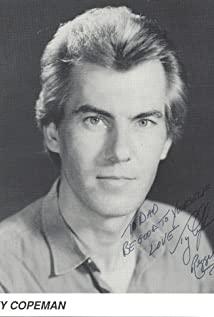Reputation and awards are so important? This is my biggest feeling after watching this movie. This is a biographical film. It has to truly reflect the life of the mathematician Nash, and Nash has indeed experienced the torture of schizophrenia and won the highest honor of the Nobel Prize. That’s right, but I really don’t like this one. The way the movie is expressed. The performance of this film makes me feel that Nash has become a person with extraordinary talents and a strong desire to be respected and reputation by others. And this kind of desire occupied Nash's heart, making him imagine that the country needs him to crack the code to complete an important task of saving the country. In his consciousness, he uses this unreal imagination to satisfy his own kind of Desire makes him feel how important he is. And in the movie, I clearly remember that the big suit with a checkered collar Brother said to Nash, "I will let people across the country know that this important task was done by you." This sentence is a good proof of this. Middle-aged Nash was tortured to death by the contradiction between reality and imagination. When Nash quit his job and his life collapsed, the processing of the movie made the picture extremely bleak, which is understandable, because the reality of Nash must have been full of despair during that period. But when Nash returned to college, his state of mind seemed to become peaceful, and everything seemed to be on the right track. However, this movie treats the elderly Nash as an extremely wretched, dementia, which seems to have completely become The burden in the school. At this time, I sympathize with Nash. But because he finally accepted the reality and calmed down his mind, I also felt a little relieved. When the elderly Nash was told that he had won the Nobel Prize, I was very happy, and felt that his talents were finally known to the world. But the handling of the movie once again made me unthinkable. At the awards ceremony, the picture became gorgeous, the wretched Nash became infinitely beautiful, and the person in the audience gave his thoughts to the audience in a personable manner. This sudden change once again made me feel that it seems that Nash's lifelong honor has finally come, and it is precisely because of the arrival of the Nobel Prize that Nash's desires have been satisfied. I really don’t know what the film’s approach is to promote. It seems that the pursuit of fame and fortune has been put in a very high-sounding position, and it has been pursued! How many scientists have spent their entire lives, worked hard to do a lifetime of research, and made great contributions, but their lifetime is very dull, because after all, there are only one Nobel Prize winners in a field every year. If you put your reputation in such a brilliant position, then how many people will go crazy. Is reputation really that important? In reality, I don’t know what kind of person Nash is. In short, this movie takes the Nobel Prize as a manifestation of Nash’s value, condensing the huge effect of Nash’s theory into a Nobel Prize. A word from an official of the awarding agency. If this is not a biography, this will be a meaningless film. However, it is a biography, and nothing more.
View more about
A Beautiful Mind reviews











